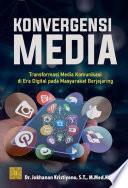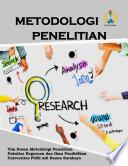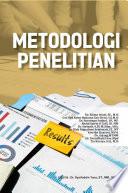
Leadership in The Digital Transformation
Kepemimpinan dalam Transformasi Digital
Buku ini lahir dari hasil presentasi makalah pada perkuliahan Leadership in The Digital Transformation di kampus tercinta Institut Agama Islam Bunga Bangsa Cirebon Tuparev. Diskusi dan sharing antar peserta, ditambah catatan-catatan di akhir perluliahan juga mendukung kelahiran buku ini. Di dalam buku ini terhimpun berbagai materi perkuliahan Leadership in The Digital Transformation. Mulai dari pengertian leadership, pentingnya leadership di zaman serba digital seperti sekarang ini, beragam cara mempersiapkan diri menjadi seorang leader, teori leadership, teori motivasi internal dan eksternal, pengertian, konsep, dan pengaplikasian transformational leadership pada tatanan kepemimpinan. Dengan hadirnya buku ini, kami berharap pembaca memperoleh ide dan wawasan baru mengenai leadership baik hanya untuk memperkaya pengetahuan sendiri maupun untuk memantapkan teori dan praktik kepemimpinan bagi seorang praktisi di berbagai lembaga dan perusahaan. Pergerakan dunia mulai dari sektor ekonomi, pendidikan, sosial, budaya dan berbagai sektor lainnya mengalami perubahan begitu pesat. Sejalan dengan hal tersebut, dibutuhkan ide cemerlang bagi pelaku usaha untuk mempertahankan usahanya. Salah satu cara yang dapat ditempuh, yaitu dengan mencari acuan yang tepat dan pedoman yang jelas sehingga dapat memberikan kontribusi dalam menyelesaikan masalah hari ini, esok, dan yang akan datang. Mengingat betapa pentingnya ilmu dan pengetahuan tentang leadership dalam kehidupan maka buku ini diharapkan bisa menjadi pedoman sekaligus acuan bagi banyak kalangan.
- ISBN 13 : 6235638426
- ISBN 10 : 9786235638423
- Judul : Leadership in The Digital Transformation
- Sub Judul : Kepemimpinan dalam Transformasi Digital
- Pengarang : Nur Muhamad Iskandar dan Tim Mahasiswa,
- Kategori : Business & Economics
- Penerbit : Penerbit KAMPUS
- Bahasa : id
- Tahun : 2022
- Halaman : 120
- Google Book : http://books.google.co.id/books?id=Fvl7EAAAQBAJ&dq=intitle:transformasi+teknologi+komunikasi&hl=&source=gbs_api
-
Ketersediaan :
Diskusi dan sharing antar peserta, ditambah catatan-catatan di akhir perluliahan juga mendukung kelahiran buku ini. Di dalam buku ini terhimpun berbagai materi perkuliahan Leadership in The Digital Transformation.









